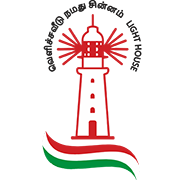Sri Lanka failed to sell 50 percent of the volume of a 100 billion rupee bond auction, the final for 2021, data from the state debt office showed, as rates rose and the country faced severe foreign exchange shortages from mostly liquidity injected to sterilize interventions.
The office offered 50 billion rupees of 15.01.2033 bond and sold all at 12.06 percent.
On December 12, 15.03.2021 bonds were sold at 11.61 percent. The security was quoted around 11.85/12.05 percent before the auction.
The debt office rejected all bids for 15 billion rupees of 01.08.2025 bonds despite getting 36 billion rupees.
It also rejected all 38.3 billion rupees of bid for 25 billion rupees of 15 June 2027 bonds.
Sri Lanka is facing external default and rating of ‘CC’ after the central bank placed price controls on bonds and printed unprecedented volumes of money.
It then had to spend reserves to exchange the money for dollars as the newly printed money triggered a balance of payments deficit.
Some of the bonds that were repaid with printed money does not correspond to the current year deficit but to prior years.
On January 03, about 97.5 billion rupees of bonds and another estimated 50 billion rupee coupon is due.
When the holders of bond get the printed money, they will spend or save in banks, which in turn will give them out as credit, instead of raising new deposits, creating a forex shortage.
Remaining foreign reserves will be lost when the central bank gives convertibility to the new rupees.
A budget deficit will create inflation and balance of payments trouble only if the central bank prints money to accommodate it and keep rates down to boost credit artificially with ‘legally counterfeited’ fiat paper money.
“[We are making] it possible for the public to convert Government securities into money to expand the money supply.. . ,” Federal Reserve Governor Mariner Eccles said in 1951 as the agency was forced to buy World War I bonds to keep rates down.
“We are almost solely responsible for this inflation. …[T]he whole question of having rationing and price controls is due to the fact that we have this monetary inflation, and this committee is the only agency in existence that can curb and stop the growth of money.. . . ”
Sri Lanka has lifted most price controls on goods, but forex shortages are continuing.





